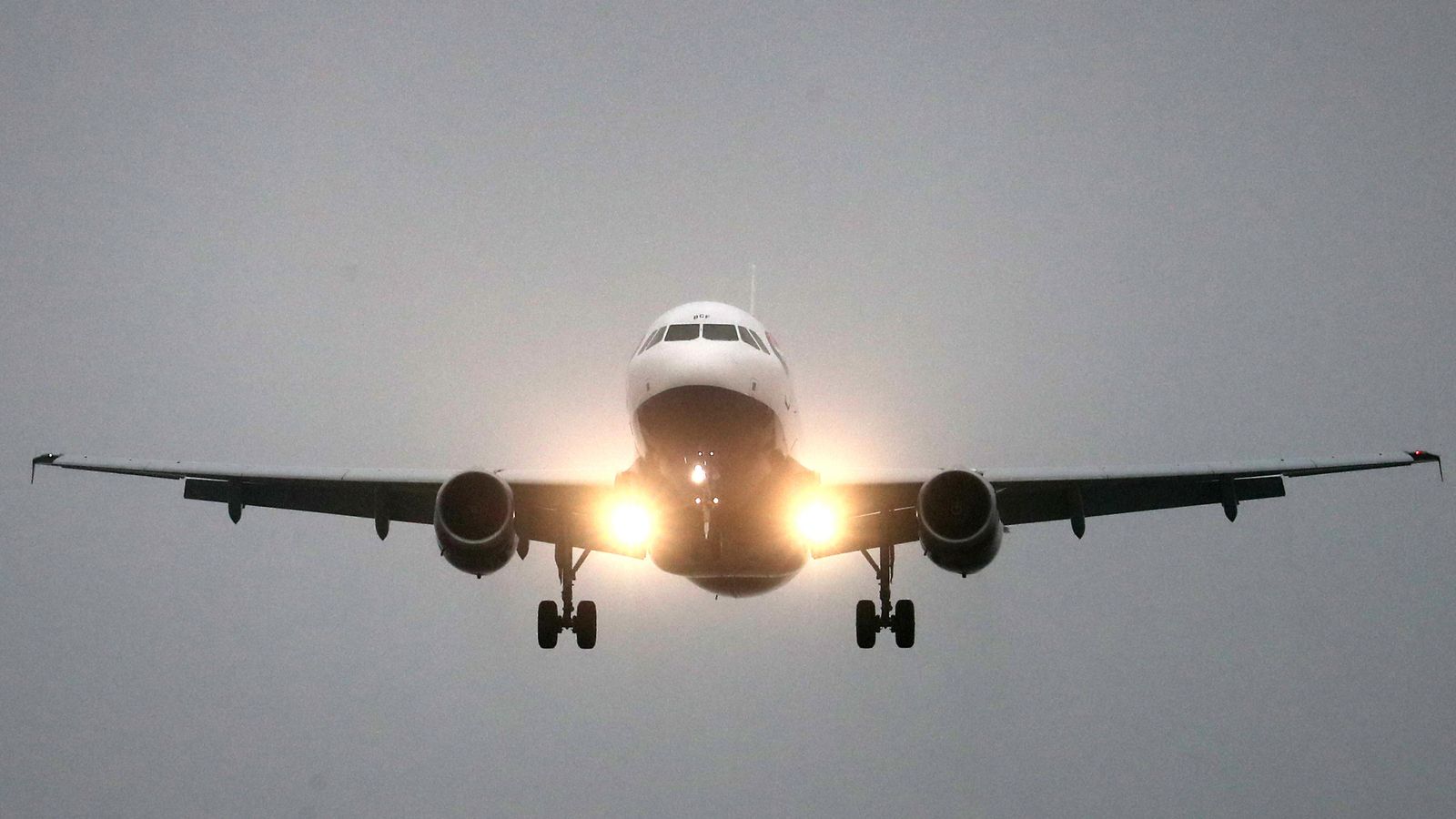More than 20 flights have been cancelled, with others delayed or diverted because of a lack of staff in air traffic control at Gatwick Airport.
The airport apologised for “any inconvenience caused” and urged passengers to contact their airline.
A spokesperson for Gatwick Airport confirmed “22 flights have been cancelled” but said “the situation is however improving with an additional air traffic controller now in place.”
“The air traffic control restrictions are reducing as a consequence and more aircraft are able to arrive and depart,” they said.
National Air Traffic Services (NATS) had earlier said “air traffic control restrictions have been put in place” due to “a short notice staff absence” affecting the air traffic control team at Gatwick.
“We are working closely with the airport to ensure we can handle flights with as little disruption as possible and we apologise very sincerely to people who have been inconvenienced [as a result of unavoidable diversions],” they said.
The Sussex airport added in a statement: “NATS are a world-class provider of air traffic services and London Gatwick’s senior management recognises how hard the airport’s air traffic controllers are working to keep the operation moving.
Air traffic control chaos: Could it happen again?
Gatwick strikes: Holidaymakers warned of ‘severe disruption’ as fresh walkouts announced
Gatwick Airport strikes called off as workers accept 10.3% pay rise
“We are working closely with NATS to build resilience in the airport’s control tower to ensure disruption is kept to a minimum.”
One person complained on social media that a flight had been diverted to Bournemouth airport.
Airlines have an obligation to keep passengers comfortable in the event of a “significant delay” – with the Civil Aviation Authority setting out a clear definition of what meets this threshold.
You qualify for support if a short-haul flight under 932 miles (1,500km) is pushed back by two hours. This rises to three hours for journeys up to 2,175 miles (3,500km).
For long-haul flights going any further, four hours or longer counts as a significant delay.
In the event of a significant delay, airlines must give passengers:
• A reasonable amount of food and drink
• Refunds for the cost of two free phone calls, faxes or emails
• Accommodation for passengers stranded overnight
• Transport to a hotel – or their home
If airlines are unable to organise support in a timely manner, the Civil Aviation Authority says affected consumers have the right to make their own “reasonable” arrangements – but they must keep receipts in order to be reimbursed.
Typically, airlines have to provide compensation if their flights arrive three hours late – but staffing issues with air traffic control likely do not count because such issues are not their fault.
If you agree to travel on a later flight, the airline is no longer obliged to offer food, drink or accommodation while you wait. But they are entitled to a full refund if they decide to abandon their journey after five hours of delays.
Bank holiday disruption
It comes after the NATS control system for the entire UK was hit by a technical glitch over the bank holiday weekend, causing widespread disruption.
Be the first to get Breaking News
Install the Sky News app for free
More than a quarter of flights to and from UK airports were cancelled, affecting around 250,000 people.
Cancellations continued for two more days as planes and crew were out of position.
Click to subscribe to the Sky News Daily wherever you get your podcasts
Rory Boland, of consumer group Which?, said: “It is unacceptable that some Gatwick passengers have been hit by further air traffic control problems so soon after the chaos a few weeks ago.
“This is not an issue caused by airlines, but they must meet their legal obligations to look after passengers and provide them with support during delays and help with refunds and re-routing – including with other carriers if necessary.
“To help end this cycle of miserable passenger experiences, the prime minister must play his part and prioritise legislation to give the Civil Aviation Authority stronger enforcement powers.”







